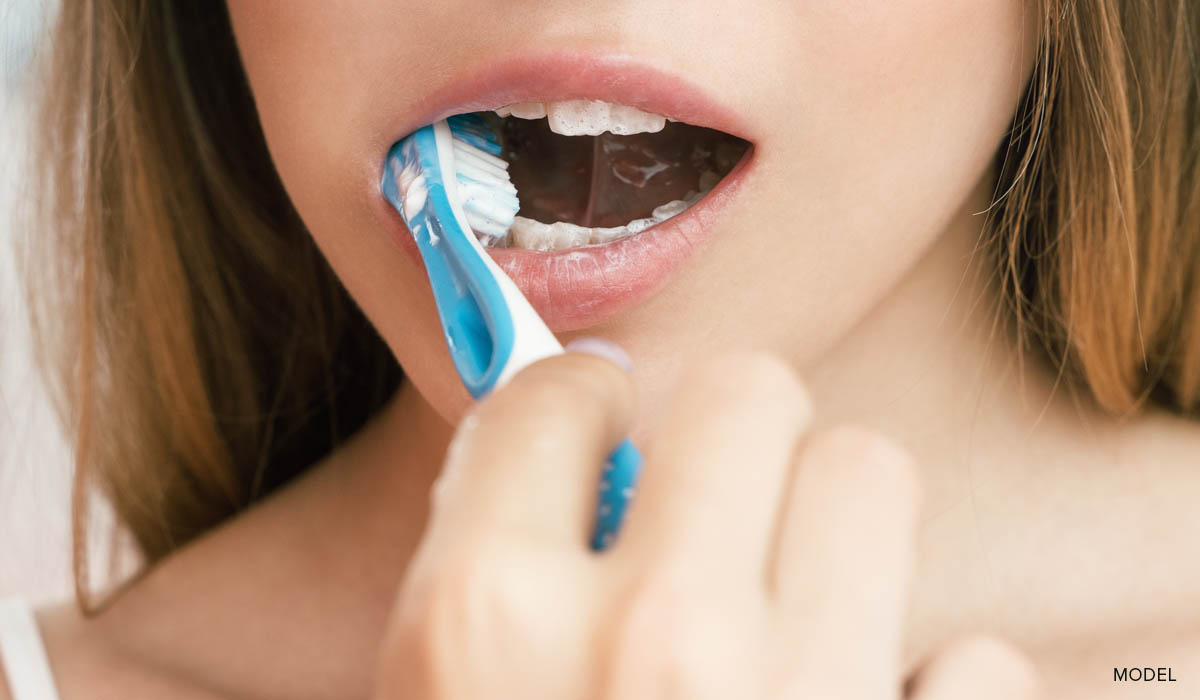Bulimia nervosa is a serious eating disorder that affects millions of people worldwide. People with bulimia often feel a lack of control over their eating habits and may consume large amounts of food in a short period of time (bulimia teeth). This is often followed by purging behaviors, such as induced vomiting or excessive exercise, to compensate for the calories consumed. While the physical and emotional consequences of this disorder are well-documented, the impact of bulimia on oral health is often overlooked.
When someone engages in purging behaviors, such as frequent vomiting, the stomach acids that are brought up can have negative consequences for their teeth and overall oral health. Stomach acids from frequent vomiting can erode tooth enamel. This erosion can lead to sensitivity, discoloration, and even cavities. In addition, frequent exposure to stomach acids can lead to dry mouth and gum disease, both of which can further damage teeth and gums.
The Effects of Bingeing and Purging on Oral Health
People with bulimia who engage in bingeing and purging are at a particularly high risk for dental problems. Frequent exposure to stomach acids can weaken and erode tooth enamel, making teeth more susceptible to decay and damage. This can lead to a range of dental problems, including:
-
Cavities
Stomach acids can wear away tooth enamel, leaving teeth vulnerable to decay and cavities.
-
Dental erosion
Frequent exposure to stomach acids can also cause dental erosion, which can lead to sensitivity, discoloration, and cracks in teeth.
-
Broken teeth
Excessive vomiting can put pressure on teeth, causing them to crack or break.
-
Gum disease
Frequent vomiting and dry mouth can increase the risk of gum disease, which can lead to tooth loss.
How to Protect Dental Health When You Have Bulimia

If you have bulimia, it’s important to take steps to protect your dental health. Here are some tips to help you maintain good oral health:
-
Brush your teeth regularly
Brushing your teeth after each meal or snack can help remove food particles and bacteria from your mouth, reducing the risk of tooth decay and gum disease. Be sure to use a soft-bristled toothbrush and fluoride toothpaste, and brush for at least two minutes.
-
Rinse your mouth with water after vomiting
Rinse your mouth with water after vomiting can help remove stomach acids from your mouth and reduce their impact on tooth enamel.
-
Seek dental care regularly
Regular dental check-ups can help detect dental problems early and prevent further damage to teeth and gums. Your dentist can also recommend treatments to repair damaged teeth and prevent further decay.
-
Limit the amount of food you consume
Reducing the amount of food you consume during binge eating episodes can help reduce the impact of stomach acids on your teeth and oral health.
-
Avoid induced vomiting
Induced vomiting can cause serious damage to teeth and oral health, and should be avoided whenever possible. If you feel the urge to vomit, try to distract yourself with other activities or seek help from a mental health professional.
-
Manage dry mouth
Dry mouth can increase the risk of gum disease and dental decay. Drinking water regularly and using sugar-free gum or lozenges can help stimulate saliva production and reduce the risk of dry mouth.
-
Avoid excessive exercise
Excessive exercise can increase the risk of dental erosion and damage to teeth and gums. If you feel the urge to exercise excessively to compensate for binge eating, try to find alternative ways to cope with your emotions, such as therapy or support groups.
-
Consider dental treatments
If you have experienced dental problems due to bulimia, your dentist may recommend treatments that can help restore your smile and improve your overall dental health.
Dental Treatments for Bulimia Teeth: Options and Considerations
Cosmetic dentistry can be a helpful option for bulimia patients who have experienced dental damage. Here are some options and considerations to keep in mind:
-
Dental Implants
Dental implants can be used to replace missing teeth and restore your smile. However, it’s important to wait until bulimia is under control before undergoing this treatment.
-
Veneers
Veneers are thin shells that are placed over the front of teeth to improve their appearance. They can be used to cover up discoloration, chips, and other cosmetic issues.
-
Dental Bonding
Bonding is a process in which a tooth-colored resin is applied to teeth to improve their appearance. This can be a good option for minor chips, cracks, or gaps.
-
Teeth Whitening
Professional teeth whitening can help brighten your smile and improve the appearance of stained or discolored teeth.
Before undergoing any cosmetic dentistry procedures, it’s important to talk to your dentist about your bulimia and any dental damage you have experienced. They can help you determine which treatments are appropriate and ensure that your dental health is stable before proceeding.
Bulimia nervosa can have detrimental effects on dental health. It’s crucial for individuals with this condition to take the necessary measures to safeguard their teeth and oral health. These steps can help minimize the damage caused by the disorder and promote good dental health. However, seeking professional help is also essential for those struggling with bulimia. You may consider reaching out to mental health professionals and support groups for guidance and support.
If you’re considering dental treatment for bulimia-related dental damage, schedule a consultation with Madison Dentistry. Our experienced dental team can assess your dental health and recommend appropriate treatments to help restore your smile and improve your overall well-being. Remember, taking care of your dental health is an important step in your journey toward recovery.




